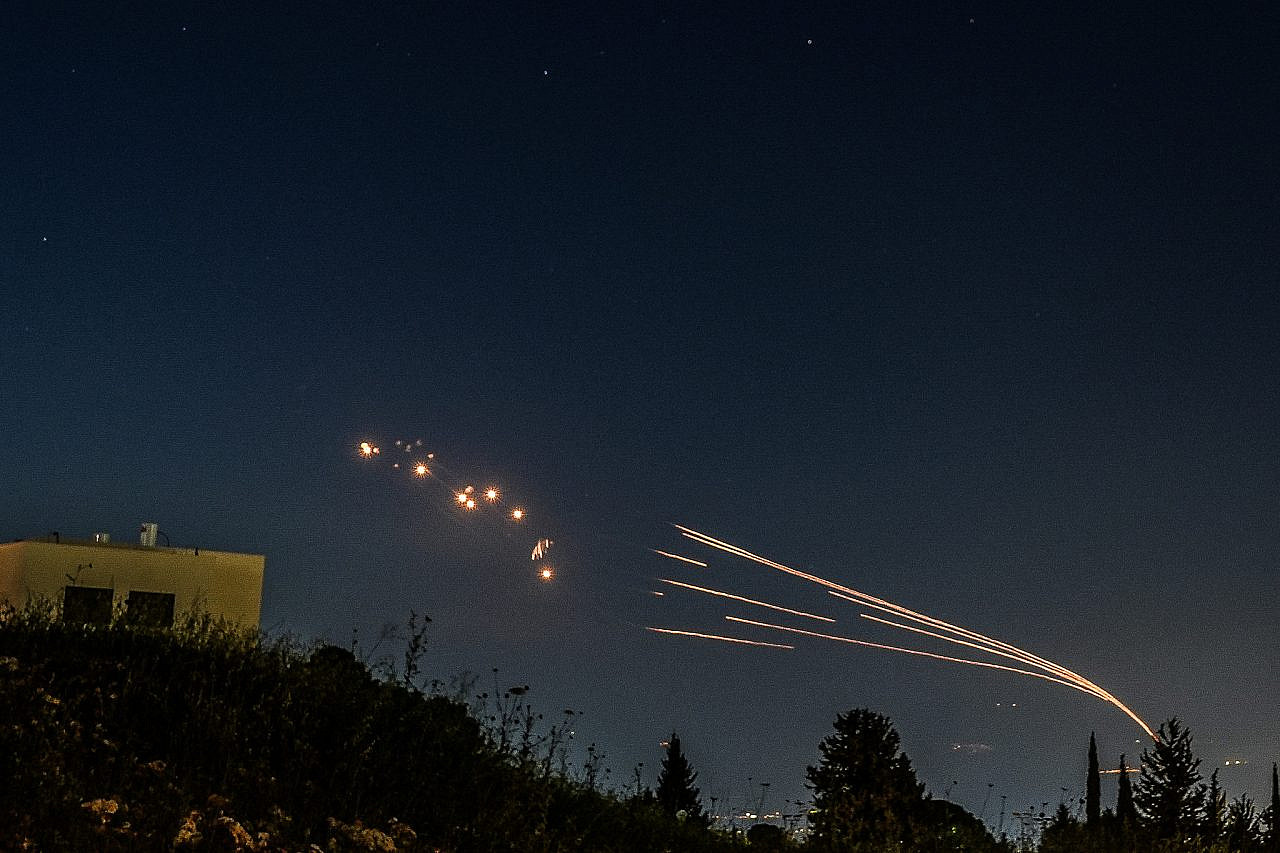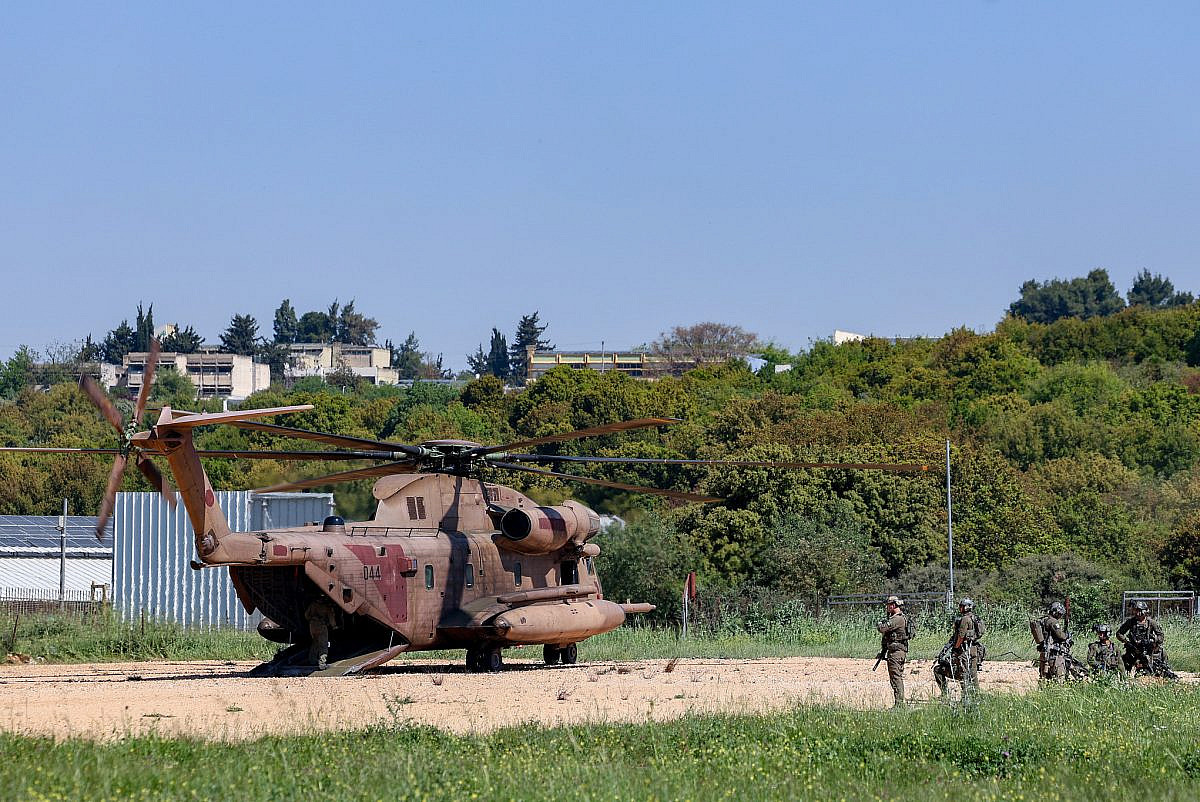Iran’s dramatic attack on Israel on April 13 was no bolt from the blue. It had been building for years, in response to Israel’s increasingly brazen attacks on Iranian targets across the region — from weapons depots used by Iran’s regional allies to the Islamic Republic’s own nuclear scientists and senior military officials. After October 7, these attacks accelerated further, culminating in Israel’s April 1 bombing of the Iranian Embassy compound in Damascus that killed several senior Islamic Revolutionary Guard Corps (IRGC) officers.
While Israel’s leaders patted themselves on the back for another successful operation, the world looked on in bewilderment, knowing that this time Israel has crossed all red lines. Under countless international agreements, embassies have an inviolable right to protection. When this right is violated, conflicts and wars quickly escalate.
The past 50 years provide no shortage of examples of this. The takeover of the American Embassy in Tehran and the ensuing hostage crisis in November 1979 led to the severing of relations between Iran and the United States. The attempted assassination of Israeli Ambassador Shlomo Argov in London in 1982 was one of the catalysts of the First Lebanon War. The bombing of the Israeli Embassy in Buenos Aires in 1992 exposed Hezbollah, as well as Iran, to harsh sanctions.
Therefore, from the moment Israel attacked the Iranian Embassy in Damascus two weeks ago, most analysts were expecting a response. The one that followed was remarkably restrained.
By all estimates, Iran was not seeking a regional escalation. Immediately after Israel’s April 1 attack, Tehran opened a direct channel of communication with the United States, reportedly telling the Americans that if they compelled Israel to agree to a ceasefire in Gaza, Iran would refrain from retaliating at all. When it became clear that this was not on the table, an Iranian military response soon followed: late Saturday night, Iran declared the beginning of its attack by launching around 170 drones, which would take several hours to reach Israel. Thus, in effect, Iran alerted Israel and its allies with plenty of advance warning, allowing the vast majority of the drones — along with the missiles that followed — to be intercepted.

Had Iran sought to catch Israel by surprise, it could have unleashed the ballistic missiles that were deployed in the final phase of the attack, whose flight time is 10-12 minutes, without any warning. Moreover, the overwhelming majority of these missiles were aimed at Israeli military bases — that is, Iran refrained from targeting civilian population centers. Only one person was seriously wounded as a result of the attack: a 7-year-old girl from an unrecognized Bedouin village, who was injured by a fragment of a missile that was intercepted by the Iron Dome (unrecognized villages, home to over 100,000 Arab Bedouin citizens in the Negev/Naqab desert, are not provided with shelters, leaving them completely exposed to rockets and falling shrapnel). Immediately afterward, Iran announced that as far as it was concerned, the issue was settled, unless Israel insisted on retaliating further.
In January, I wrote for Local Call (+972’s Hebrew partner site) about Iran’s moderating role in the war, despite its bellicose rhetoric. I still believe that Iran refrained from entering the war, restrained Hezbollah, and did not provide the logistical or military umbrella that Hamas expected after its October 7 attack. According to Israeli intelligence estimates, Hezbollah is equipped with hundreds of thousands of missiles that can reach Haifa and cities south of it; if Iran had an interest in inflaming the region, it would have coordinated the attack from Lebanon too, rather than alerting the world to the drone attack hours in advance of their arrival.
Of course, there are many crimes for which to hold Iran accountable — primarily its murderous policies toward the Iranian people, treatment of dissidents, mass executions in the aftermath of the Mahsa Amini protest, and more. Internationally, too, the Iranian regime has contributed to instability in the region and beyond: its proxy wars with Saudi Arabia and the UAE in Yemen, its support for and close cooperation with Hezbollah in Lebanon, its newfound love for Putin’s Russia, and the worrying progress of its nuclear project since the collapse of the JCPOA.
Most read on +972
The Islamic Republic cannot get a free pass for these actions, and the international community must hold it to account while working to mitigate the sources of regional tension. Recent Iranian agreements with Saudi Arabia and the UAE point to how these conflicts can be de-escalated, and further concentrated diplomatic efforts in this vein are essential. Still, so long as Israel’s assault on Gaza continues, there remains a risk that the region could explode.
The right thing for Israel to do now is to end this terrible war — in Gaza, and with Iran. We must reach an agreement to return the hostages who are still alive, bury our dead, allow the Gazans to bury their dead, and start thinking about new directions in order to ensure the security of all the region’s residents. That would require Israel’s government to do something that almost no Israeli government has done for decades: put our safety above the settlements and the desire to live forever by the sword. Jordan’s involvement in intercepting Iran’s missiles provides a glimpse of what that alternative future could look like.
This article was first published in Hebrew on Local Call. Read it here.





